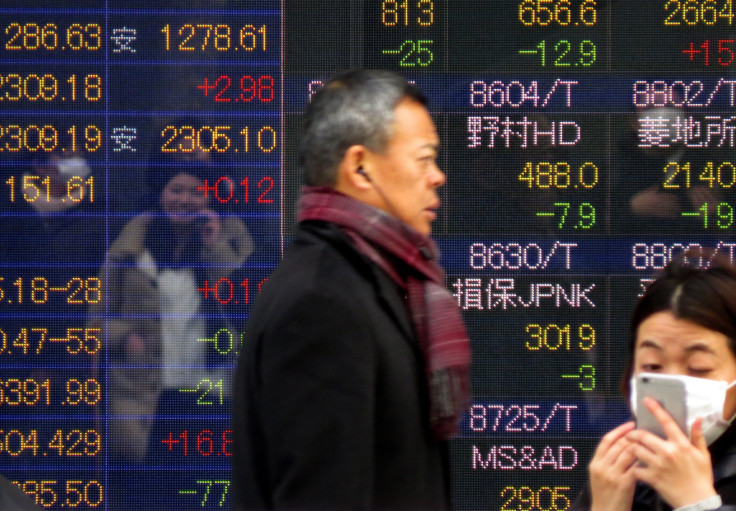Asian Stocks Mixed As Oil Falls, Investors Await Japanese, European Manufacturing Data

Asian stocks opened mixed on Monday after oil ended last week lower and investors awaited manufacturing data from Japan and Europe.
Japan’s Nikkei 225 fell 0.1 percent, reversing earlier gains. A February manufacturing report is due Monday at 9 p.m. EST. South Korea's KOSPI fell 0.2 percent, Singapore’s STI was little changed and Australia’s ASX 200 was up 0.4 percent.
In the U.S. on Friday, the Dow Jones Industrial Average fell 0.1 percent, the Standard & Poor’s 500 was up 0.4 percent and the Nasdaq Composite was flat.
Oil fell on Friday after a Thursday report showed U.S. stockpiles hit a record the previous week. That offset Iran’s statement that it supported a ceiling on oil production, even if it didn’t commit itself to a ceiling or to cuts. Iran’s statement came amid reports of Saudi Arabia-Russia talks to address the decline. Oil's fall from over $100 a barrel in mid-2014 has hurt energy companies and the many industries that supply them around the world.
The world crude benchmark fell $1.27, or 3.7 percent, to $33.01 a barrel: It was down 1 percent for the week, Reuters reported. The U.S. benchmark slipped $1.13, also 3.7 percent, to $29.64. It was flat for the week.
A split in the U.K.’s ruling Conservative Party over whether to leave the European Union raised some investor concerns. London Mayor Boris Johnson, seen by many as a leading candidate to succeed Prime Minister David Cameron, said he would campaign for Britain to leave the EU — a so-called Brexit — in a vote Cameron has set for June 23. Cameron just got concessions from the EU that he says argue for the U.K. staying in. The U.K.’s exit could have unforeseen implications on others leaving the EU or the euro. Even speculation rattled currency markets.
“Brexit will be one of the biggest events in 2016,” said Evan Lucas, a markets strategist in Melbourne at IG Ltd., Bloomberg reported. “Boris Johnson’s decision over the weekend to support the Brexit campaign has caused the pound to move wildly."
© Copyright IBTimes 2025. All rights reserved.





















